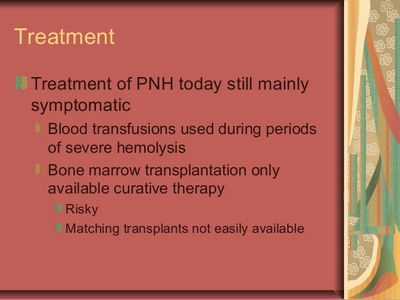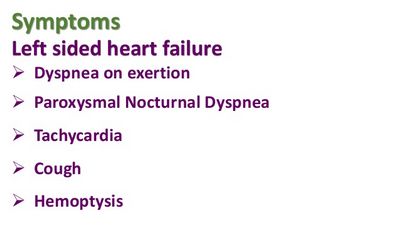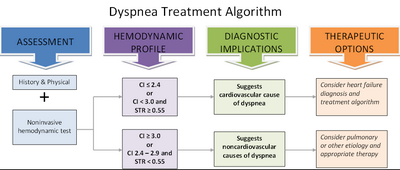Treatment of paroxysmal Nocturnal Dyspnea depends on its underlying cause.

Treatment often includes medication, diuretics, anti-inflammatory drugs, medications to treat high blood pressure, and beta blockers to reduce breathing through the nose. However, sometimes a patient is left with a serious medical condition that only can be treated by more conventional means. This type of treatment can usually only be used in patients who have a long history of having respiratory problems.
Paroxysmal Nocturnal Dyspnea can be caused by many different conditions, including lung infections, sinus infections, pneumonia, allergies, high altitudes, obesity, chronic obstructive pulmonary disease (COPD), and other conditions that affect the breathing muscles. Some of these conditions may not be present in the lungs, depending on what caused the infection to begin with. Other conditions can cause airway inflammation and blockage.
Treatment of Paroxysmal Nocturnal Dyspnea is best done after identifying the cause of the symptoms. It is important to know the exact cause of the disorder, because if the cause is not known, then the proper treatment will not work. Once the cause of the symptoms is identified, then the proper treatment plan can be put into place. If the cause of the problem lies in the lungs, then the most common treatment of paroxysmal Nocturnal Dyspnea includes bronchodilator therapy. These drugs are often used to treat COPD or obstructive pulmonary disorder, where there is an obstruction in the airway caused by various diseases or illnesses.
If the cause of the symptoms is in the brain, then treatments of paroxysmal Nocturnal Dyspnea may involve medications to calm the nervous system. Medications are also available to treat anxiety disorders.

There are also psychotherapy sessions that may be recommended, depending on the severity of the disorder. Therapy helps patients understand how they feel when they have problems breathing, which helps them to get better at recognizing their own breathing patterns. Hypnotherapy may be used to help patients learn better breathing skills.
Another treatment of paroxysmal Nocturnal Dyspnea that may be used includes drug-free methods of airway dilatation, such as bronchoscopy. or balloon angiography. If these methods of treatment do not work, then a surgical procedure, such as a Tracheostomy (decongestion of the trachea) or Laminectomy, may be performed. Although this procedure is not very invasive, it still is surgery and carries with it some risks, so you should discuss the option of surgery with your doctor if your symptoms persist.
Sometimes there is more than one reason why a person has problems with breathing. If so, then multiple treatments are required. In these cases, the doctor may use various approaches to provide relief to the patient.
If you suffer from paroxysmal Nocturnal Dyspnea but you are having trouble getting a doctor to treat you, contact your insurance provider. Most health insurance plans cover treatment for this condition. Sometimes your insurance company will cover a portion of the treatment, but you should check with your health insurance company to find out what is covered and what it is not covered.
There is no cure for Paroxysmal Nocturnal Dyspnea.

It is important for people who suffer from this disorder to understand what the causes of the symptoms are and to seek the appropriate treatments for the disorder. Medication and surgery can often help. However, if you or someone you know is suffering from Paroxysmal Nocturnal Dyspnea, then you should talk to your doctor about your problem.
Paroxysmal Nocturnal Dyspnea is often a difficult condition to deal with and most people who suffer from it can’t even begin to realize that there is a problem. The person suffering from the disorder may be tired all the time, or he or she may have a headache. These things are common symptoms of Paroxysmal Nocturnal Dyspnea, so many sufferers never think anything of them.
Although most people with Paroxysmal Nocturnal Dyspnea never know about their condition, sleep apnea is another sleep disorder that can cause similar symptoms to those of Paroxysmal Nocturnal Dyspnea. This disorder is usually caused by problems with the breathing muscles. If you have either of these conditions and your doctor has ruled out any other possible causes, then the only thing that remains is for you to figure out how to overcome the disorder.
The treatment for Paroxysmal Nocturnal Dyspnea will vary from person to person. It depends on the cause of the condition, the intensity of the condition, the cause itself, the severity of the symptoms, the time it takes to overcome the condition, and the results you are achieving with the treatment. If the treatment you are considering is a homeopathic treatment, then it may take several weeks, months, or even years to bring about complete relief from the disorder. However, many sufferers of Paroxysmal Nocturnal Dyspnea have managed to completely overcome their condition and live a life free of breathing problems.